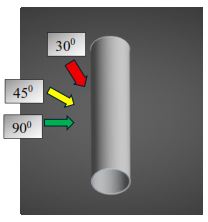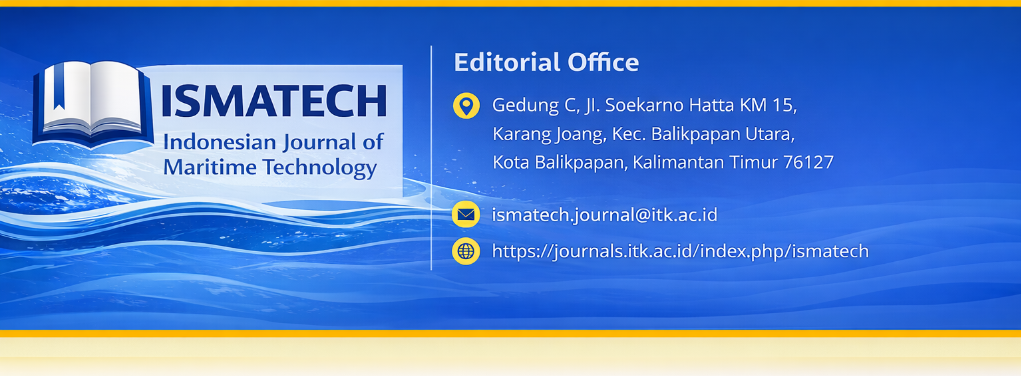Fatigue Life Analysis of Subsea Pipelines due to Vortex Induced Vibration (Viv) at Free Span Case: Wnts (West Natuna Transportation System)
DOI:
https://doi.org/10.35718/ismatech.v3i2.8481529Keywords:
Free Span, Vortex-Induced Vi-bration (VIV), Heading Flow, Fatigue, DNV-RP-F105Abstract
Subsea pipelines in free-span conditions are highly susceptible to Vortex-Induced Vibration (VIV), which generates cyclic stresses and accelerates fatigue failure. This study investigates the fatigue life of a West Natuna Transportation System (WNTS) subsea pipeline under varying heading flow angles (30°, 45°, and 90°) using ANSYS CFD simulations and the Palmgren-Miner fatigue model, in accordance with DNV-RP-F105. Simulations considered Reynolds numbers of 100, 500, and 3.91×10⁵ to capture laminar-to-turbulent flow regimes. Results show that the 90° heading flow produces the most severe VIV, with maximum bending stresses up to 5.59×10⁸ Pa and a corresponding minimum fatigue life of less than 10⁵ cycles, while 30° heading yields significantly longer lifespans, exceeding 10¹⁶ cycles in some cases. Average fatigue life decreased by up to 99.99% when flow incidence increased from 30° to 90° under turbulent conditions. The findings highlight that pipeline orientation relative to prevailing currents strongly influences vortex dynamics, and that aligning pipelines at oblique angles (30°–45°) can substantially reduce fatigue damage risk. These insights can inform the design and operational strategies of subsea pipeline systems in regions with strong and variable currents, such as the Natuna Sea.

Downloads
Published
How to Cite
Issue
Section
License
Copyright (c) 2025 Hifzul Anwar Siregar, Luh Putri Adnyani, Samsu Dlukha Nurcholik, Destyariani Liana putri

This work is licensed under a Creative Commons Attribution-ShareAlike 4.0 International License.



















